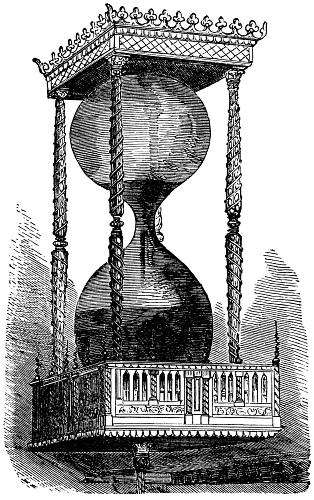So we have lost an hour today. I can’t help feeling that I would have wasted it anyway. A whole sixty minutes of prevarication, vacillation and hesitation gone into some metaphysical limbo of mutual consent over clocks. I suppose the idea of losing an hour would be far more enticing if we all got to choose which hour of life we lost: a segment of train journey, gone; a dreary meeting, evaporated; an almost imperceptible skip and the omnibus edition of the Archers is nearly over.
There is a great deal about the change to the ironically named British Summer Time that I do not understand. Do night-watch-men and telephone sex line operators get an hour of their wages docked? Who decided that the clocks should all change at 1 a.m. precisely (a fact I only deduced from looking at television schedules). Surely midnight would be the more logical choice? Why do we do it anyway? Lodged in a vague piece of my brain is the memory of a radio debate which seemed to revolve around benefits to farming, road-safety and the possibility that Scotland and Wales could have clock-manipulation as a devolved power, which would lead to a possible upsurge of late October tourism, as people flocked to the Border to stand with each foot an hour apart.
It is, I suppose, to give us more daylight as if that were a universally agreed upon good thing. Personally, I prefer the gloaming, the dusk, the long dawns and the first tinges. These are times, or rather moments, that are good for our non-existent souls; periods of change; stark ambiguities. They have meaning, whereas day and night have merely significance.
At first, I didn’t even realise that the clocks had changed today. I got up when I woke up, made coffee, contemplated the marmalade, mused about the sermon which, at the time, was mostly about the Ethics of Shaving, and turned on the radio. It was Sunday Worship, so I switched it off again before I realised it should have just been Sunday – the programme, not the day. I was well aware it was Sunday. It was only when I turned on the computer that I realised it was later than I thought it was – the little box of tricks, in its self-satisfied and tyrannical way, knew more than I did. But at least I knew that it is always later than we think.
~~~
The revelation: the four quotations – the awful see-sawing sex scene, the mysterious disappearance of food not accomplished by rats, the hokum about the pituitary gland and congenital dwarfism and the what-ho bally-hoo about Irish bureaucracy: can you tell what it is yet? It was, of course, John Christopher’s “novel of pure terror” The Little People. Christopher – real name Samuel Youd – wrote the wonderful Tripods books (which I remember vividly, as I got it out of Galashiels Public Library the day before my 10th birthday in 1982) and the modern classic The Death of Grass. Covers can be extremely misleading – as in these crackers…





I don’t quite get the relevance to The Little People, but thanks for the kind words!
The Sermon’s unconnected; the post scriptum a reference to an ongoing competition about the marvellously odd old cover…. any publishers dropping in here, a heartfelt plea. Penguin Classics have already done The Death of Grass as a classic – much more of the work of John Christopher should be elevated to similarly canonical status.
I know a man who used to manage teams of night watchmen. They got paid the same whether it was a regular shift, a clock-forward night or a clock-back night.
As you can imagine there were constant arguments about the nights when the clocks went back — but at the other end they quietly pocketed their wages and went home whistling.